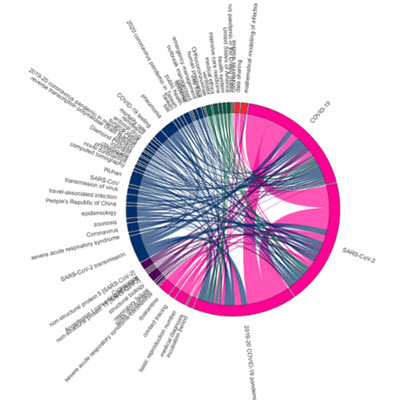Probability high! Why statistics skills could get you hired in health
If you thought statistics skills were reserved for finance and accounting gigs, think again – there are loads of opportunities for maths graduates in the field of health.
Statistics at school might seem pretty text-book heavy, but in the real world there are so many exciting ways you might use it on the job. Just as important as a stethoscope to a next-gen doctor’s kit are skills in collecting, analysing and drawing conclusions from quantitative data. This niche skillset not only helps with diagnosing and treating patients, but also in communicating with them about their conditions too.
What is statistics?
Statistics is a branch of mathematics that primarily deals with the collection, analysis, interpretation and presentation of mass numerical data. At school or university, it involves a lot of linear algebra, probability, calculus and optimisation work. And on the job?
In the health sector, it’s all about dissecting data to draw really important conclusions to help patients and clients.




What are some health jobs that use statistics?
All of them! Yes, if you think about it, most jobs would require an employee to turn to statistics at some point – whether that be grabbing a figure to support some research or weighing up the likelihood of a particular result. In health fields, however, statistics can be literally life-saving.
Nurses, for instance, use statistics to identify patterns in symptoms and determine whether a patient needs immediate medical attention or follow-up care.
‘I use it every day,’ stresses registered nurse Jackon Simon. ‘It’s so important in things like drug calculations and doing up dosages. Making errors has serious consequences. We do maths exams in uni for nursing where you have to get 100 per cent.’
It’s the same deal with health research too, where dissecting data can reveal some pretty game-changing insights. Lead data scientist for health at the University of Sydney Dr Aldo Saavedra applies statistical methods and machine learning to extract important health information about patients.
‘Statistics can help us understand what the most effective treatment is for a patient,’ he says. ‘It allows us to incorporate patient characteristics in a way that is reliable and reproducible.’
Other statistics-heavy health roles include health planners, surgeons, analysts, pathologists, biomedical engineers, health administrators and GPs.
How do I get statistics skills?
Sticking with high school maths is a start. Year 10, 11 and 12 units will equip you with some pretty advanced understanding. At uni and TAFE, most health degrees and certificates require you to complete compulsory statistics courses, and in others you can take it up as an elective on the side. And if it’s a major passion of yours? Look into maths-heavy degrees like a Masters of Mathematical Science.